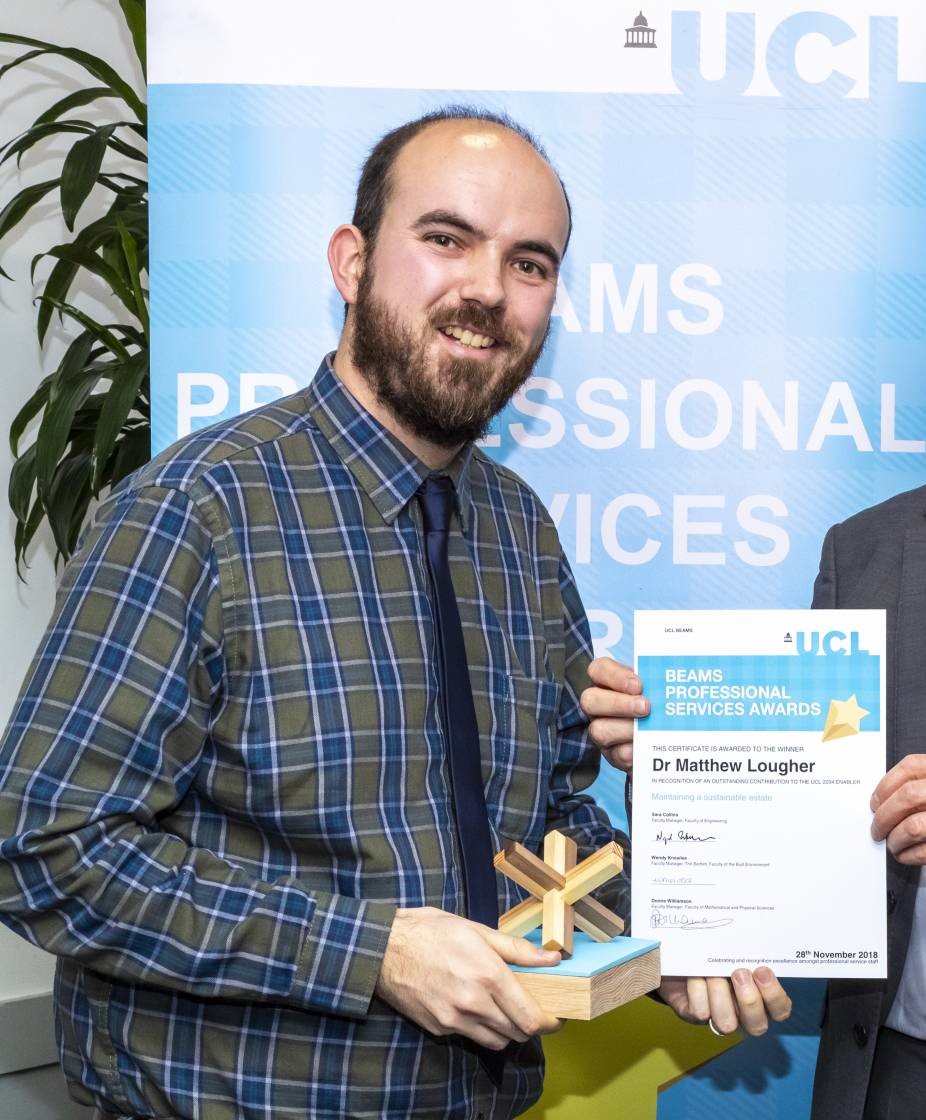Matthew Lougher: Physics and MOAC DTC - London Centre for Nanotechnology

What degree course did you study and when did you graduate
Physics (MPhys), graduated 2011 then MOAC DTC (MSc + PhD), completed 2015.
Why did you choose that particular degree course?
When I started university I did intend to pursue a career in academia. Physics was my main interest at school so I chose that as my field of further study.
During my undergraduate degree, I developed an interest in medical physics and MRI, and enrolled on MOAC as a way to continue working with magnetic resonance equipment as well as work at the life sciences/physics/chemistry boundary.
During my PhD I realised that a career in academia wasn't for me.
Tell us about your employer
I work for the London Centre for Nanotechnology, a department of University College London. As this is a research department, our customer base is mainly academic staff and post-graduate researchers/PhD students.
What was the position you were recruited for?
I was initially recruited as a Laboratory Manager for a bio-nanotechnology laboratory within the department. My role was to maintain laboratory operations via safety assessments, consumable purchasing, etc. as well as liaising with the wider department.
I am now the Safety and Facilities manager for the department as a whole, working with central Estates as well as senior academics to ensure the maintenance and operational functionality of approximately 20 laboratories.
What attracted you to this position?
Its interdisciplinary nature. On leaving Warwick I initially worked for a small company manufacturing lab equipment for the life sciences sector and wanted to stay in this area while also returning to my roots in Physics. Also, I took a Unitemps position while still at Warwick managing the laboratory in which I completed my PhD, and a lot of the tasks in my initial role in the LCN were similar to what I enjoyed doing during that period.
What are the key skills you learnt at Warwick that have helped you with your career to date?
The main skills I use from my time at Warwick are the interpersonal skills I developed during my PhD when I was working between three different research groups in Chemistry and Life Sciences. As research is done differently in different disciplines, the ability to communicate with people in different fields in a way suited to their work is definitely a help in my current role where I interact with academics in Physics, Life Sciences, Engineering and Computer Sciences.
What has been your greatest career challenge to date and how did your experience and skills help overcome it?
My biggest challenge has been taking on my current role with no handover notes and no records or files from the previous 3 years or so. Through my experiences managing individual laboratories, and skills in organisation and file management, I was able to start from scratch and rebuild the records, extrapolating what was needed for the whole department based on what I knew had been required for a single lab.
What top tips would you give to students looking for a career in your market sector?
Try different things during your time at university (temp work if possible elsewhere in the department) to see what you enjoy doing outside of the main content of your programme of study.
What do you know now that you wish you had known when you were applying for jobs?
You don't have to find your perfect career straight away; taking a couple of job moves to find what you really want to do can help find your perfect role.
